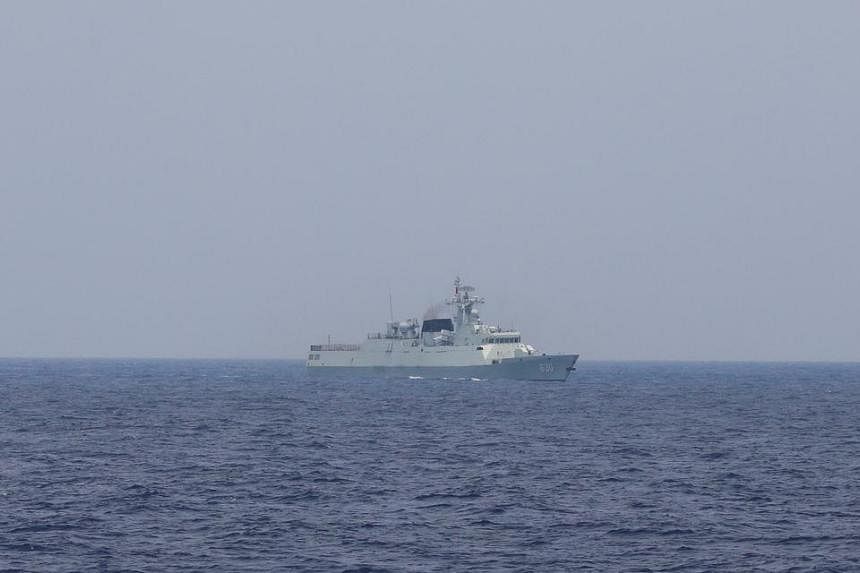MANILA – The Philippines summoned China’s envoy on March 25 to protest against “aggressive actions” in the South China Sea at the weekend, as Manila’s Defence Minister dared Beijing to bolster its vast sovereignty claims by taking them to international arbitration.
The Foreign Ministry accused China’s coast guard of using water cannon against a civilian boat supplying troops on March 24 at the Second Thomas Shoal, which it said damaged the boat and injured some crew members, the latest in a series of flare-ups in the past year.
“China’s continued interference with the Philippines’ routine and lawful activities in its own exclusive economic zone (EEZ) is unacceptable,” the Philippine Foreign Ministry said in a statement, which announced the charge d’affaires of the Chinese embassy had been summoned, and a diplomatic protest lodged in Beijing.
“It infringes upon the Philippines’ sovereign rights and jurisdiction,” it said, demanding Chinese vessels leave the area.
China’s coast guard on March 23 said it took necessary measures against the Philippine vessels that were intruding in its waters.
China claims almost the entire South China Sea as its own, including the Second Thomas Shoal, which is within the Philippines’ 320km EEZ.
The Philippines intentionally grounded an old warship at the shoal in 1999, as a means of bolstering its territorial claims, and has kept a small military contingent there ever since.
A spokesman for China’s Foreign Ministry said on March 25 that the Philippines promised 20 years ago – under then President Gloria Macapagal Arroyo – to remove that warship, but had yet to make good on that promise.
But the Philippines has repeatedly denied making such a commitment, and has said it will not abandon its position at the Second Thomas Shoal.
China has deployed hundreds of coast guard vessels throughout the South China Sea to patrol what it considers its waters, despite a 2016 Permanent Court of Arbitration ruling in a case brought by Manila that said the claim had no basis under international law.
China has refused to recognise that outcome.
Philippine security chiefs convened a high-level meeting on March 25 over the incident, to prepare recommendations to put to President Ferdinand Marcos Jr on ways forward in the dispute.
Manila’s Foreign Ministry said: “The Philippines has made sincere efforts to implement the instruction of President Marcos and President Xi (Jinping) to lower tensions.
“China’s aggressive actions call into question its sincerity in lowering the tensions and promoting peace.”
China’s Defence Ministry told the Philippines to cease “provocative actions” and comments that may lead to conflict and an escalation.
Since taking power in 2022, Mr Marcos has taken a tough line against what he sees as Chinese hostility and has refused to cave in to Beijing’s pressure to steer clear of features it claims.
The tensions come at a time when Mr Marcos is seeking to deepen engagement with defence treaty ally the United States, including increasing base access for US troops and expanding military exercises to include joint air and sea patrols, developments China has viewed with suspicion.
Washington has said it stands with the Philippines as it condemned the “dangerous actions” of China. Japan, Britain, Germany, France, Canada and Australia have also issued statements of support for the Philippines.
“The US is not a party to the South China Sea issue but repeatedly intervened, provoke the maritime issues between China and the Philippines,” Chinese Foreign Ministry spokesman Lin Jian said at a news conference on March 25.
In comments likely to rile Beijing, Philippine Defence Secretary Gilberto Teodoro suggested on March 25 that China should show the strength of its maritime claims through arbitration, rather than ambiguity.
Mr Teodoro told reporters: “If China is not afraid to state its claims to the world, then why don’t we arbitrate under international law?
“No country believes (their claims) and they see this as their way to use force, intimidate and bend the Philippines to their ambitions.” REUTERS

